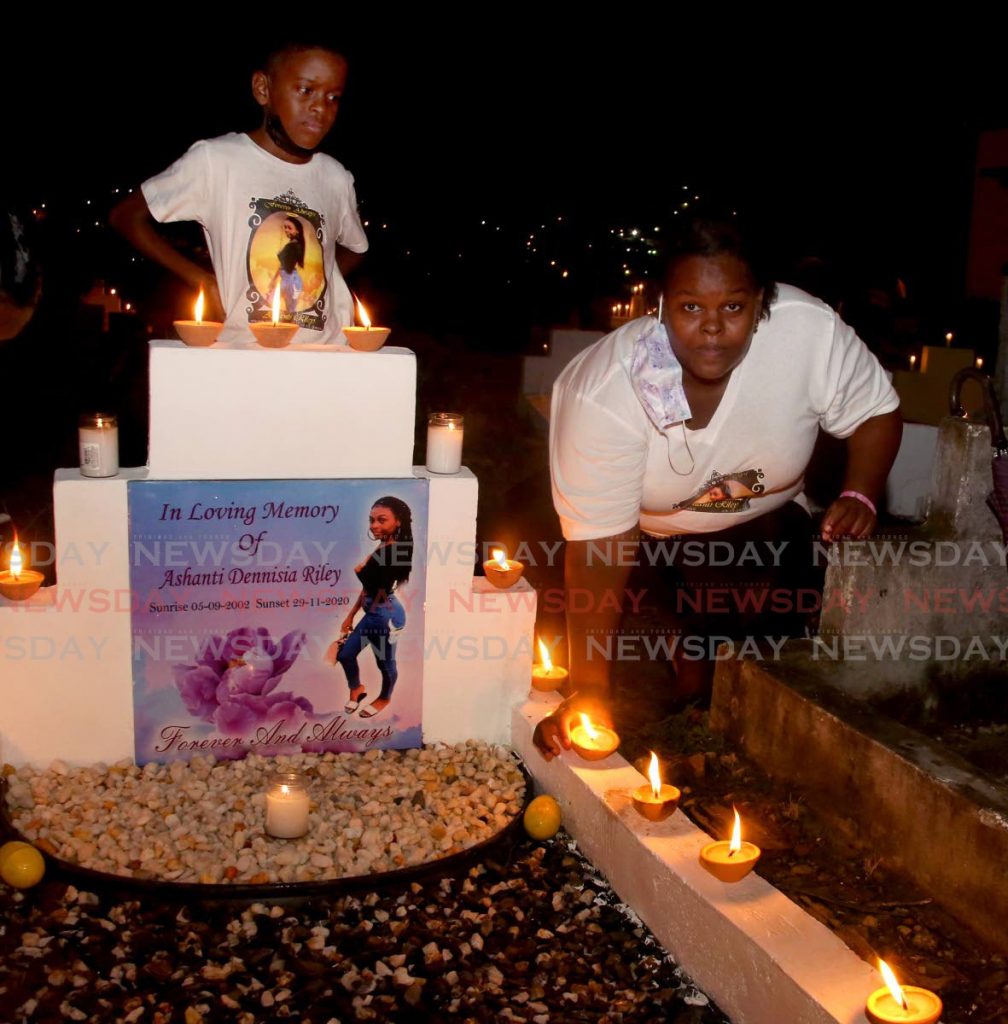For TT women, no safe zones

MURDERS of women continue unabated in this country.
That has been confirmed by the fact that in the month in which the family of Ashanti Riley marked a year since her murder by lighting deyas and candles at her grave in San Juan on Tuesday, yet another tragic case involving a young woman being killed has occurred.
Divali is supposed to symbolise the triumph of light over darkness, but what came to light over the public holiday on Thursday was that the worst fears of the family of 27-year-old Kezia Guerre had come true.
Ms Guerre’s body was dug up from a four-foot-deep grave in the forest, some 300 feet from Santa Barbara Road in Maracas, St Joseph. She was last seen by loved ones a few days ago. Instead of preparing to celebrate her birthday later this month, they must now mourn her death as the nation adds her name to a long and seemingly unending list.
Ms Riley’s death was followed by the murder of Andrea Bharat earlier this year. The latter was regarded by many as a breaking point, a moment when the nation took stock and took to the streets in candlelight vigils, saying, “Enough is enough.”
But we see today that not enough progress has been made.
It is little comfort to observe that people have been charged for many of these heinous crimes; far preferable would it be for them not to have happened in the first place.
“Crimes of passion,” “mistaken identity,” “in the wrong place at the wrong time” – these are the arbitrary labels that officials sometimes apply to killings, often as a way to suggest little could have been done.
While it is the individual who pulls the trigger or holds the knife or delivers the fatal blow who is strictly responsible for their actions, the State is also responsible for an environment in which guns remain too readily available; misogynistic attitudes are widespread and often unchallenged by leaders; detection lags behind crime rates; and the deterrence value of the law has been undermined by an inefficient criminal justice system.
The pepper-spray law was passed with opposition support in the Parliament, even as many pointed out the law did not go far enough to put this tool into the hands of the people who needed it most (two Independents abstained). Saying it did not want to add another weapon to the arsenal of cold-blooded killers, the State made pepper spray largely available to law-enforcement officers. Police even used it against protesters in September.
The law has only benefited police, not the people who need it most.
Meanwhile, women continue to die.


Comments
"For TT women, no safe zones"